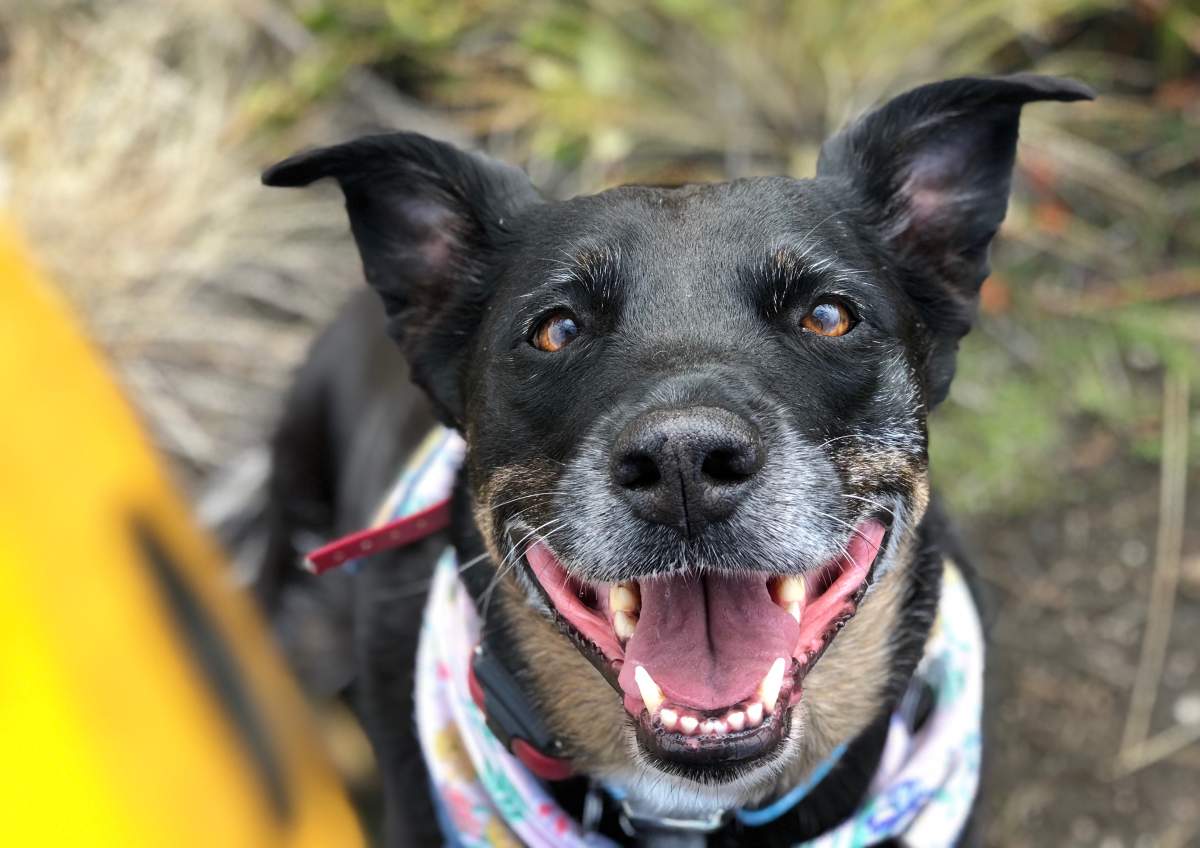Jessica Leeworthy remembers her dog Chanel as goofy, with a love of hide and seek.

“She was spectacular. She had eyes that would just melt your heart. She had such a personality,” Leeworthy said, wiping away tears. “She just loved being with people.”
Chanel was diagnosed with pancreatic cancer, and Leeworthy and her husband made the heart-wrenching decision to put her down.
Leeworthy said they missed their first two appointments, but on the final day, they spent the day playing with Chanel and her favourite toys.
“And I got to kiss her and watch her take her last few breaths, and it was beautiful,” she said.
But the grief that follows the death of a furry family member can be overwhelming.
That’s why Okanagan pet professionals held a forum on Sunday. They’re hoping to learn how to better support those in mourning.
“Pet grief support is a little bit under-recognized, and that’s why we want to shed some light to it,” Jared Stirling, co-owner of Okanagan Pet Cremation, said.
“We definitely noticed an increase over the years of people’s pets becoming a more integral part of the family. And when they lose them, it’s like losing a family member,” he added.

Get daily National news
Therapeutic counsellor Jessica Hughes said the key to offering support is simply listening.
“For them to be able to share how important that pet was to them, memories that they’ve done, help them to create ceremony around the loss, so that they can make meaning out of it,” Hughes said.
She added that those who are struggling should consider counselling.
Everyone grieves in their own way, at their own pace, Hughes added.
WATCH: Building up resilience to grief helps prepare for life’s losses

Leeworthy said that she knew she couldn’t go through Chanel’s belongings after she was gone.
“On her last day, we decided in the morning that we would rather go through her belongings with her there,” she said. “So we went through all her things with her and got her to pick which toys she wanted to give to her friends, and she got to say goodbye to everything, and we got to thank her belongings for her memories.”
They then went to the SPCA with Chanel to donate her toys before heading to their favourite beach.
“We just got to live our life with her. We expressed our love,” she said.
Leeworthy said she felt she experienced most of her grief before Chanel was euthanized.
“I was with her every day, and I watched her decline,” she said. “I just felt so much relief that I didn’t hear her struggling anymore.”
“She only knew that last beautiful day, and that’s it. That’s how she went out.”
Leeworthy said learning about anticipatory grief, which is grief that happens before death, helped her understand her emotional state better.
“It just described what I was feeling. I was feeling nothing — not angry, not sad, not happy. I just wasn’t feeling anything. So when it said that this was normal, it felt like a weight was lifted. It was like, ‘Oh, I’m not broken.’”
Leeworthy said it can be difficult to express how she’s feeling to some people who don’t have pets.
“I think that people see pets as the bottom of the chain of grief, you know, the least amount of grief,” Leeworthy said.
“Having this kind of communication, this kind of community, it validates the bond between a pet and an owner, and it could lend itself to not feeling alone or not making people feel alone,” Leeworthy said.
As for people who are trying to comfort somebody who just lost a pet, Leeworthy recommends asking them what they need.
“Don’t try to have a solution for them, because sometimes there isn’t a silver lining. Yes, my last day with Chanel was beautiful, and yes, I have been able to get back to work. But her being gone is still the worst thing.”




Comments
Want to discuss? Please read our Commenting Policy first.